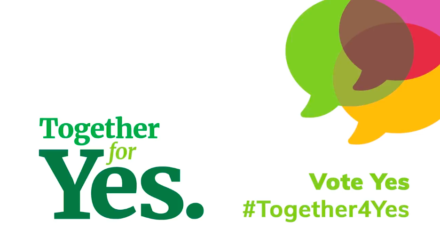
Yesterday, nine Irish women will have travelled to England to terminate a pregnancy. Today millions of Irish voters will decide through a referendum whether abortions up to 12 weeks can happen legally and safely within Irish borders.
Currently, the 8th amendment, a clause in the Irish constitution, gives equal right to life of the mother and the unborn. This makes abortion illegal in most cases, including rape, incest and fatal foetal abnormality. If a woman or a healthcare professional chooses to defy these laws, they risk criminality and up to 14 years of imprisonment.
This is one of the most conservative and restrictive laws on abortion in the Western world. A case study gestured to emphatically by conservative voices across the world to support arguments in favour of regressive abortion laws.
This referendum is not on whether abortion can happen in Ireland: abortions have and will always happen in Ireland. Since the inception of e-commerce, Irish women have been illegally purchasing abortion pills online, of which 1,200 were seized in one year alone. There is no guarantee of the safety of these illegal pills or their reliability, but Irish women are purchasing them and potentially risking their lives by doing so. This referendum is simply on the criminality of abortions and whether they can legally be administered by medical professionals in safe settings.
To have a safe abortion is a luxury for Irish women. It involves a flight to the UK, often an overnight stay in a hotel, a private abortion service costing £600 before 14 weeks – a fee that doubles after 19 weeks. This is a luxury denied of working-class Irish women, women in abusive or controlling relationships, women without a passport, immigrant women with travel restrictions and disabled women who have high living costs. It is also uncertain if this option will become even more inaccessible once this pinball machine Brexit settles on a deal.
I am a young Irish woman. If I were to become pregnant, I would have autonomy over my body as I live in Birmingham. My teenage sister, who lives in rural Ireland, would not have the same freedom to choose – even if she were a victim of sexual assault.
I have supported pro-choice since I knew what it meant at the age of 10. Unfortunately, I fear that many ‘No’ supporters still do not fully understand what it means or have confused it with another notion. ‘No’ campaigners have claimed repealing the 8th would grant ‘abortions on demand’. This vending-machine like imagery is not only false, it’s insulting – terminating a pregnancy is never and never will be as flippant as choosing between a Twix or a Mars bar.
When feminists discuss the right to choose, we mean the right to make difficult decisions about our lives and our bodies because we are capable of making those decisions and should be trusted to do so. Just like we are capable of choosing contraception, choosing to use consent, choosing how we vote. These are all freedoms of choice granted to us through the fierce fights of our sisters before of us and hopefully the right to choose an abortion will join them as the latest rung on the ladder of gender equality in Ireland.
The inherent Labour values of compassion and empathy have prompted many Labour members to get involved with the ‘Yes’ campaign. Hundreds of Labour members have flown to Ireland, potentially sharing the same plane as a woman returning home after having a safe abortion, to campaign for accessible abortions at home in Ireland. Even more have helped fund the journeys home of Irish expats from across the world. #HomeToVote has connected donors with voters who are seeking funds for a ticket to the polling station in the hopes of ‘Yes’ victory on Saturday morning.
Ireland is a tenacious country of fierce people, one that has such a history of championing freedom for all of its existence – yet it denies its own women the freedom of their bodies. I hope that yesterday was the final nine lonely and painful return flights booked. I hope that today Ireland will vote yes for that freedom. I hope that tomorrow will be a brighter day for gender equality.
Kirsten Kurt-Elli is disabled students officer for Labour Students.




More from LabourList
‘Ukraine is Europe’s frontier – and Labour must stay resolute in its defence’
Vast majority of Labour members back defence spending boost and NATO membership – poll
‘Bold action, not piecemeal fixes, is the answer to Britain’s housing shortage’